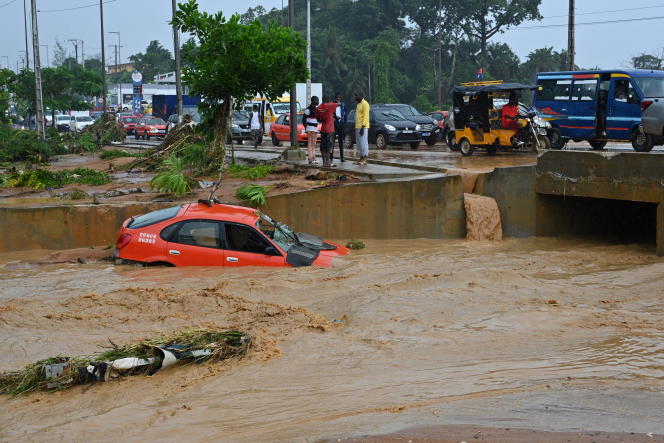Nineteen people died in June in Côte d’Ivoire, after several episodes of heavy rains which notably fell on Abidjan, the economic capital, affected by an intense rainy season, the presidency said Thursday, June 7.
A press release published after a national security council deplores “a tragic assessment” with “19 deaths, 5 injuries as well as floods and numerous material damages, in several districts of Greater Abidjan”. Two nights of torrential rains hit Abidjan on June 16 and 22, causing deadly floods and landslides.
Ivorian President Alassane Ouattara, “after noting that Côte d’Ivoire, like several countries in the world, is subject to the harmful consequences of climate change, strongly urged the populations to free the areas at risk”, the statement continues.
June, heart of the rainy season
An operation to evacuate some fifty areas threatened by rockslides or landslides was launched in early June, as the rainy season started in Côte d’Ivoire.
These extreme weather conditions prompted the African Football Confederation (CAF) to postpone the 2023 African Cup of Nations (CAN), scheduled for next June-July, to January-February 2024, a drier period.
The scenario of torrential rains followed by devastating floods is recurrent in the largest Ivorian city. Constructions in flood-prone areas, often inhabited by poor populations, are legion in this West African metropolis of more than 5 million inhabitants, in continuous growth.
The heart of the rainy season, in this city with a tropical climate, June is traditionally the wettest month of the year, with an average of around 300 mm of water.

















